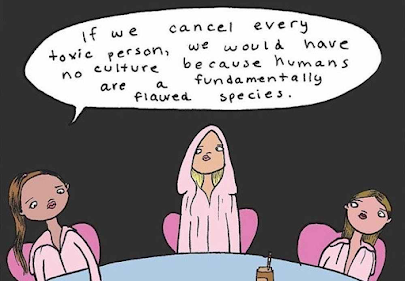While reviewing the Sharing & Tracking projects of my classmates on VoiceThreads, I'm starting to realize this whole assignment might have been a trap. We've been asked to curate a collection of resources and share it online, and we were reminded not to overthink it. Just collect, curate, share, and track. And of course, reflect on the whole experience.
Do not overthink this.
But from what I read, it seems I was not alone in doing just the opposite.
Why so?
By asking us to share some resources with other, most likely unknown human beings, we were asked to select and organize our content thoroughly. But for what purpose? As reminded in several readings in the past few weeks, sharing implies multiple participants; which itself implies knowing how to involve others; which itself requires knowing why others would be interested in what we share; which itself we find how to trigger their curiosity.
Why students would join the library community of their institution and make it live? Why healthcare providers would discuss online with peers when they can do this in person with other professionals? Why would teachers use social media to further their professional development when their institution provides learning development opportunities? Why are learners more engaged and proactive in an online course where their instructor is switching from being a facilitator, an observer, or a collaborator?
Among all the possible explanations, I guess one of them is the answer to the question: what do people need?
As designers, instructors, or facilitators, or just as members of the online world aiming to contribute to expanding collective knowledge, we need to take a 360-degree look around us and learn what's the best way to connect with others and build interactions, or even better, relationships. To me, this goes by answering the 1-billion dollar "what do YOU need?" question.
Answering this question takes time. Time for experiments, failures, feedback, introspection, tweaks. Efforts will pay in the long run.
Do not overthink it. But what if we had to do? What if this "don't" was actually a "do"?
If EME6414 taught me anything so far, it's that overthinking it is part of the game. And also that considering others' expectations is what will help us find our way as effective knowledge contributors.
via GIPHY

This goes into why humans create and share for others in the first place. Most of the time, I feel it goes down into creating what /we/ want to see, and letting others follow if they choose.
ReplyDelete